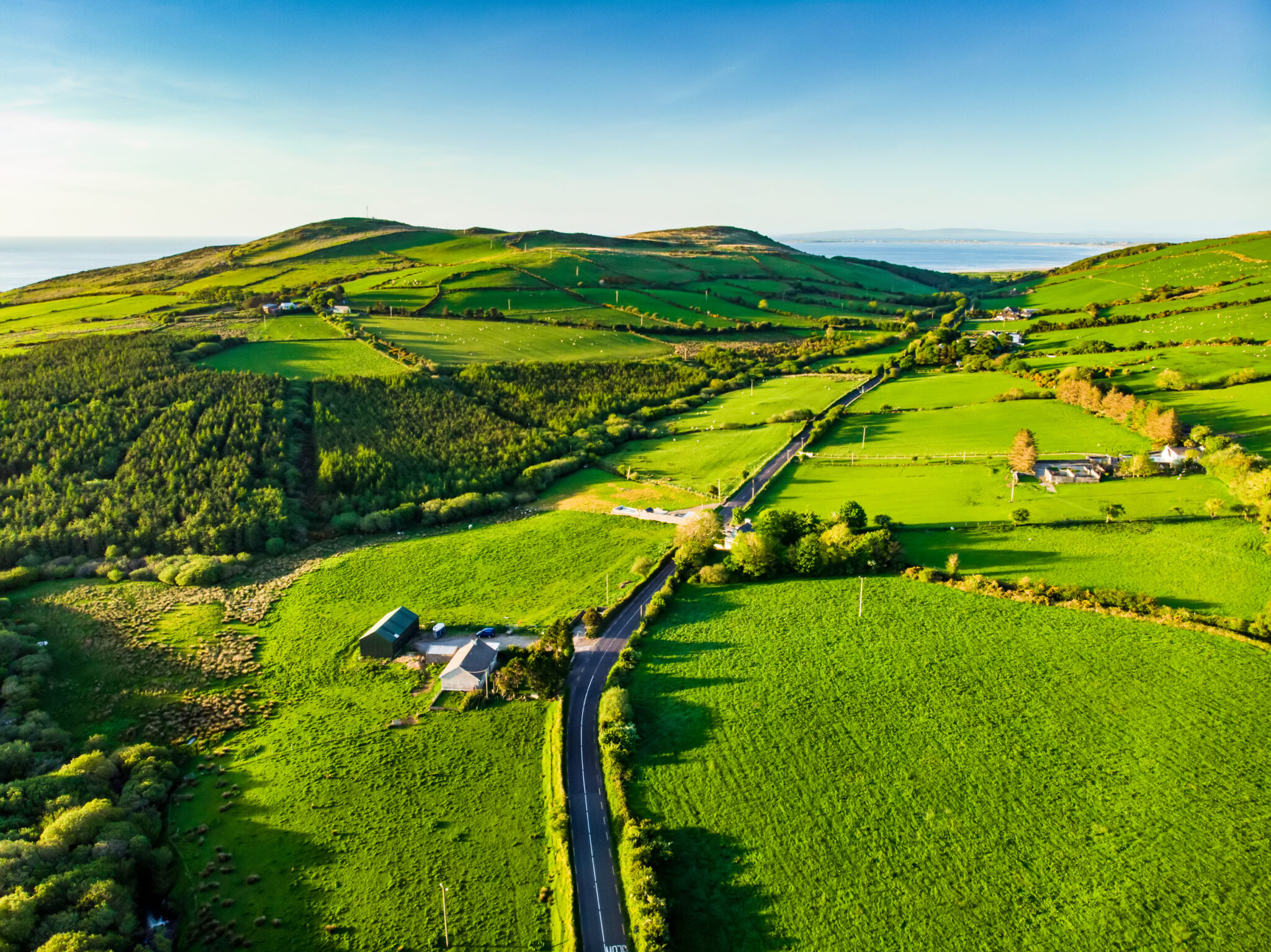After Cromwell’s conquest of Ireland, according to our host, those Irish Catholics not executed for taking part in the 1641 rebellion were exiled to Connacht in the west. Standing by the Sky Road looking out over the Atlantic earlier this year, the rolling countryside behind us and Connemara mares and foals grazing at our feet, I felt a great pull to the area; a longing for a self-imposed exile of my own.
As we drove home and the terrain changed from the desolate “savage beauty” described by Oscar Wilde to verdant farmland, each stone-walled field the perfect size for a pony paddock, my son declared that he’d like to live there. By the time we got back to his godfather’s house and a few bars of signal, I was already online looking for houses.
It might seem perverse – given how I’ve documented my struggles to settle in our adopted county of Norfolk, 100 miles from a motorway, where no one seems to need new friends because they all grew up together – to consider a move to somewhere even more remote. And yet, that sense of <em>hiraeth</em>, the Welsh word (<em>sireacht</em> in Irish) which encapsulates homesickness, longing and nostalgia, felt immediately satisfied in the west of Ireland in a way that it never has here.
On the fringes of East Anglia I have been trying to chase down elusive childhood memories, all the while looking for my late mother, thwarted by ghosts and the Sisyphean nature of my task. But in Galway, I just felt things would work for us so much better. The people are more fun: we went for pre-dinner drinks with our farmer-neighbours that lasted until about 10pm. At one point we broke off to observe my eight-year-old hurtling past at the wheel of a large tractor, accompanied by one of the hosts’ teenage sons, with a great beatific smile on his face. It remains the best day of Gussie’s life.
I loved drinking proper Guinness and eating seafood chowder in the bars in vibrant, bohemian Galway City. I loved passing Marian shrines outside villages and donkeys in fields. I loved that there was a First Holy Communion or Confirmation party taking place in every pub or restaurant we went into and the feeling of being culturally, as well as religiously, Catholic. Raising Catholic children is a lonely furrow to plough out here in the sticks, with aged congregations and the closest church several miles away.
My children were delighted to hear that in Ireland, the sacraments are “occasions for large-scale larceny”, according to one <em>Catholic Herald</em> colleague. The one question children usually ask each other afterwards is “how much did you get?” Twenty or even 50 euros from affectionate relatives is the going rate – probably with some rosary beads thrown in.
Then there’s the free university education, and the fact you can moan about the European Union while continuing to milk all the subsidies. There’s the hunting with the Galway Blazers; the folklore, the fairy trees. Rather like having faith, a place where people believe in fairies seems to me to be one of infinite possibilities.
And on the practical side, it’s not all that remote. The roads are empty. My husband could fly to his firm in New York from Shannon, clearing Homeland Security before he boards, rather than driving four hours to Heathrow and crawling round the M25.
Naturally, I’m aware that my feelings about Ireland are hopelessly romantic. They’re heavily influenced by the novels of Marigold Armitage: <em>A Long Way to Go</em> and <em>A Motley to the View</em>, set in Tipperary in the 1950s, which perfectly capture the vagaries of Irish country-house life. Hard drinking and hard riding, a dotty Anglo-Irish circus swelled by neighbours escaping the 90 per cent supertax back home.
Yet when I mused about escaping Brexit for Ireland in a similar way, I was assailed by concerned messages from hunting friends. “Darling, do not move there!” read one. “It rains every single day.” Another disclosed that she was “very concerned” when she saw the beautiful weather in my photos — because this was “absolutely not normal”.
But surely it’s easier coping with daily rain in a country where it’s the norm, I countered. Whereas in England, where there is at least some expectation of fine weather, the last two wet summers, interspersed with the longest, wettest winter I can remember, has been desperately and profoundly depressing.
And so, on the subject of rain, I clung to the words of Bishop Alan Williams, who gave the homily at the recent 20th-anniversary celebrations for the Community of Our Lady of Walsingham, for whom he is Bishop Protector. He talked eloquently and at length about how the rain falling upon us is like the grace of God.
Whilst the rain here is evidence to me of climate change, when I am poo-picking the ponies’ field on the west coast of Ireland in another Atlantic storm I propose to find it as invigorating, cleansing and refreshing as God’s eternal grace. At least, that’s the plan – should we make the move.
<strong><strong>This article appears in the September 2024 edition of the <em>Catholic Herald</em>. To subscribe to our award-winning, thought-provoking magazine and have independent and high-calibre counter-cultural and orthodox Catholic journalism delivered to your door anywhere in the world click <a href="https://catholicherald.co.uk/subscribe/?swcfpc=1"><mark style="background-color:rgba(0, 0, 0, 0)" class="has-inline-color has-vivid-cyan-blue-color">HERE</mark></a></strong></strong>.



